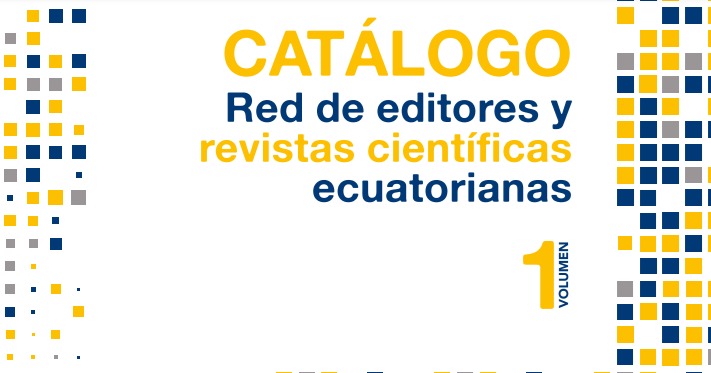NON-HIRING AS A DISCRIMINATION OF GENDER DIVERSITIES (LGBTI), IN THE WORKPLACE
Palabras clave:
Gender, LGTBI, Sexuality, Labor Environment, Discrimination, Rejection, Work, InclusionResumen
Over the years, studies at the gender level and the different contributions of social scientists have had an impact on society worldwide, this has managed to identify heterosexuality as a tradition; part of the discoveries that have been made is to make visible those men and women who, due to their sexual orientation, are considered inferior; this is how this study mentions lesbians, gays, bisexuals, trans and intersex as focal points. At present it is known that a large number of LGTBI people hide their gender identity, and even more in the workplace due to the possible rejection that they could have, despite the constitutional and legal protection that exists in Ecuador, where it clearly describes that there will be no discrimination based on ethnicity, gender, sex, religion, etc. In this case the barriers are even more noticeable if their condition is made public. This study aims to make the potential of each one of them visible in such a way that they are supported in the execution of their rights by contributing to a public policy that changes the cultural and educational at all levels, it should be mentioned that despite the rejection that have received from society, have been able to get ahead, build families, businesses, and an identity within the community where they live, setting precedents for professionalism, capacity, and knowledge to which are added skills and values that are important in a formal job.
Keywords: Gender, LGTBI, Sexuality, Labor Environment, Discrimination, Rejection, Work, Inclusion.
RESUMEN:
Con el paso de los años los estudios a nivel de género y los diferentes aportes de las y los científicos sociales han incidido en la sociedad a nivel mundial, esto ha logrado que se identifique a la heterosexualidad como una tradición; parte de los descubrimientos que se ha tenido es el visibilizar aquellos hombres y mujeres que por su orientación sexual son considerados inferiores, es así como el presente estudio menciona a las lesbianas, gays, bisexuales, trans e intersexuales como punto focal. En la actualidad se conoce que una gran cantidad de personas LGTBI, esconden su identidad de género, y aún más en el ámbito laboral debido al posible rechazo que podrían tener, pese a la protección constitucional y jurídica que existe en el Ecuador, donde claramente describe que no existirá discriminación de etnia, genero sexo, religión, etc. En este caso las barreras son más notorias aún si llegan hacer pública su condición. Este estudio se encamina a visibilizar las potencialidades de cada uno de ellos de tal manera que se les apoye en la ejecución de sus derechos contribuyendo a una política pública que cambie lo cultural y lo educativo a todo nivel, se debe mencionar que pese al rechazo que han recibido por parte de la sociedad, han podido salir a delante, construir familias, negocios, y una identidad dentro de la comunidad donde viven, sentando precedentes de profesionalismo, capacidad, y conocimientos a los cuales se suman habilidades y valores que son importantes en un empleo formal.
Palabras Clave: Género, LGTBI, Sexualidad, Ámbito Laboral, Discriminación, Rechazo, Trabajo, Inclusión.
Recibido: 05 de octubre de 2021; Aceptado: 27 de diciembre de 2021; Publicado: 07 de enero de 2022.
Descargas
Citas
Arias, F. (2012). The Research Project: Introduction to scientific methodology. Venezuela: Episteme. Retrieved from https://bit.ly/2pdpHkd
Carvajal, P. (2013). The recognition of Rights to the LGBTI Community. Legal CUC, 9 (1), 125. Retrieved from https://bit.ly/2zzc6ry
Cerón, F. (2018). Interview with the Director of the House of Culture of Tungurahua, belonging to the Vision and Diversity Organization of the City of Ambato. (M. Mayorga, Interviewer)
Constitution. (2008). Constitution of the Republic of Ecuador. Retrieved from https://bit.ly/2GxjXvD
Eco, U. (2009). How to do a thesis: Study, research and writing techniques and procedures. Barcelona: Gedisa. Retrieved from https://bit.ly/1NWucs7
Freire, B., Soria, E., & Herrera, Y. (2013). Report on the situation of human rights of LGBTI populations Ecuador 2013. Quito: Fundación Ecuatoriana Equidad. Retrieved from https://bit.ly/2ut3Yow
Hernández, S. (2018). Interview with an activist from the Vision and Diversity Organization of the City of Ambato. (M. Mayorga, Interviewer)
INEC. (2013). Case study on living conditions, social inclusion and compliance with human rights of the LGBTI population in Ecuador. Retrieved from https://bit.ly/2irfFKY
Kahn, J. (2018). Interview with a trans-masculine activist originally from Sweden and based in Ecuador. (M. Mayorga, Interviewer)
Mayorga, M. (2020). The Principle of Gender Equality and Diversity in the Workplace: Analysis between the JAKIRI LGBTIQ + Cotopaxi collective and the Vision and Diversity Organization of Ambato. Ambato.
WHO. (2018). International Classification of Diseases. Retrieved from https://bit.ly/1pHEVI3
Pazmiño, D. (2018). Included or Excluded? We at work. MAX Magazine (8), 25.
Rivas, J. (2017). Labor inclusion of people in matters of Gender Identity. SOLONIK (2), 71. Retrieved from https://bit.ly/2D8QplM
Salambay, J. (2018). Interview with the coordinator of the LGBTI Organization of Latacunga. (M. Mayorga, Interviewer)
Salazar, S. (2018). Migration, diversity and the city - The challenge of rights cities. Max Magazine (8), 21.
Sandoval, C. (2018). Interview with an LGBTI activist belonging to the Latacunga organization. (M. Mayorga, Interviewer)
Vinueza, M. (2015). The GLBTI and the principle of equality enshrined in the constitution of the Republic of Ecuador. Obtained from file: /// C: /Users/ACER/Downloads/Los%20GLBTI%20y%20el%20principio%20de%20igualdad.pdf
Zapata, M. (2016). Actions against Discrimination against the LGBTI Population; Systematization of experiences in the Ecuadorian Equity Foundation 2014-2016. Retrieved from https://bit.ly/2DtAAH9
Descargas
Publicado
Cómo citar
Número
Sección
Licencia
Derechos de autor 2022 Revista Científica y Arbitrada de Ciencias Sociales y Trabajo Social: Tejedora. ISSN: 2697-3626

Esta obra está bajo una licencia internacional Creative Commons Atribución-NoComercial-CompartirIgual 4.0.
























